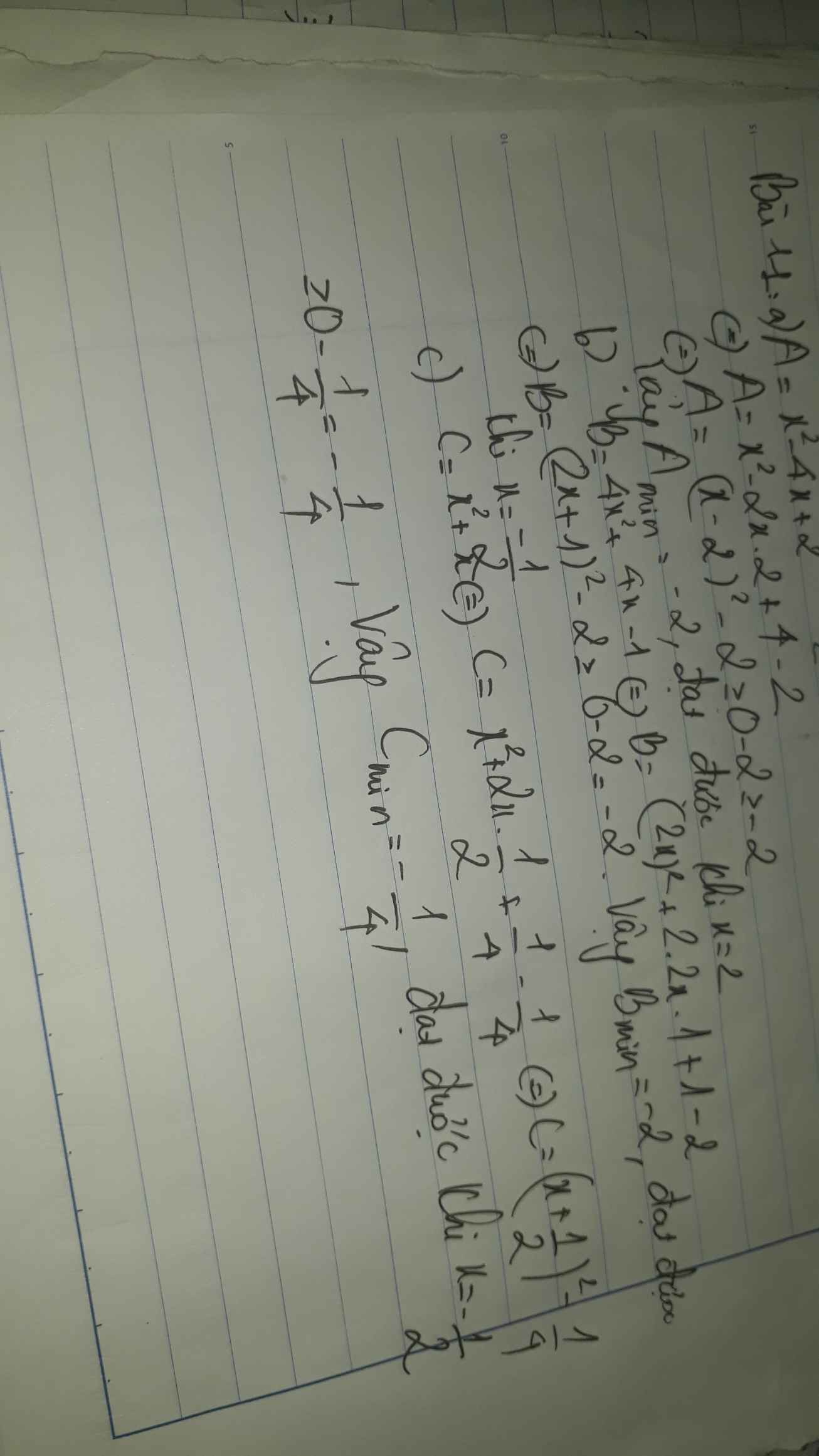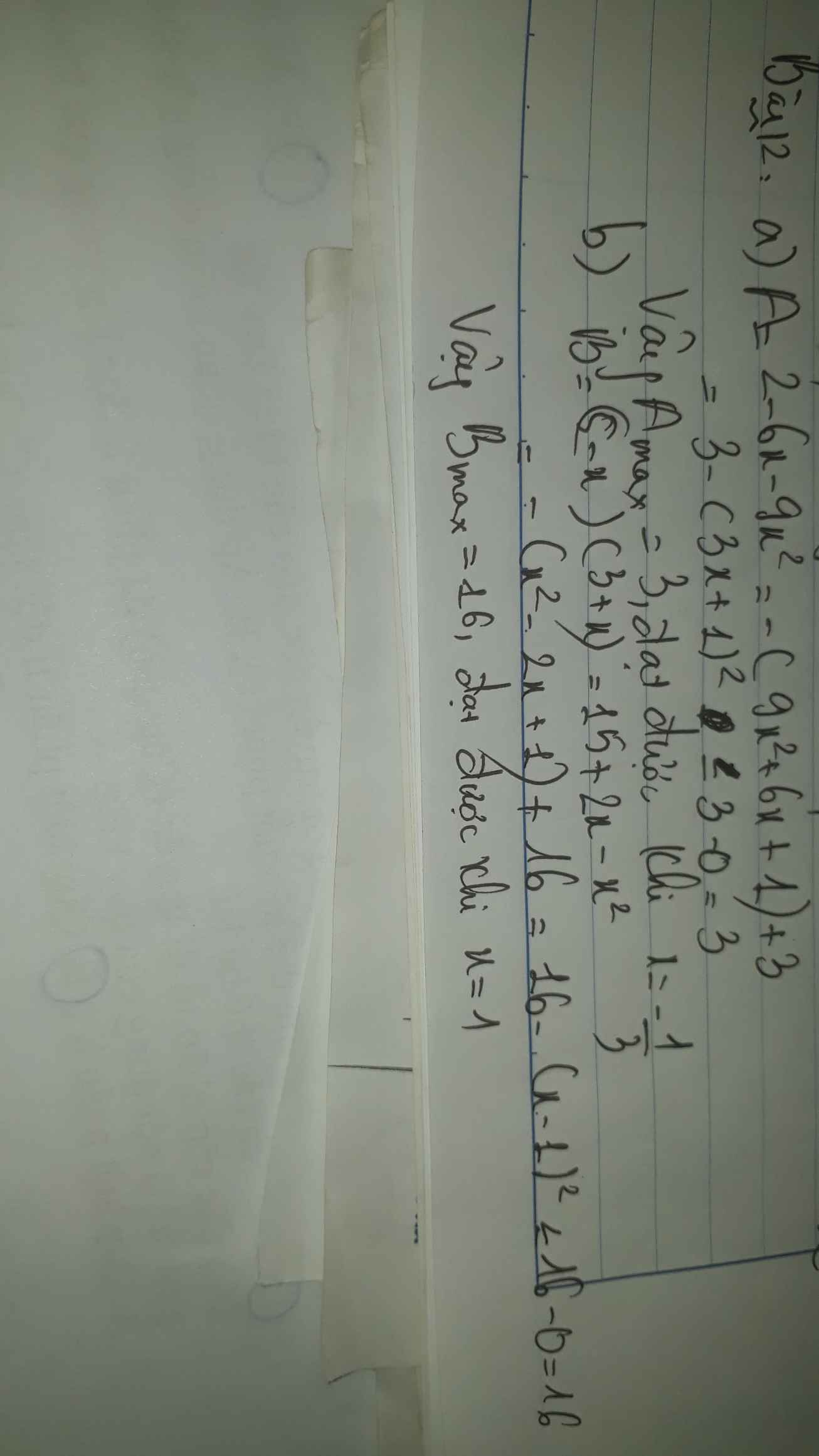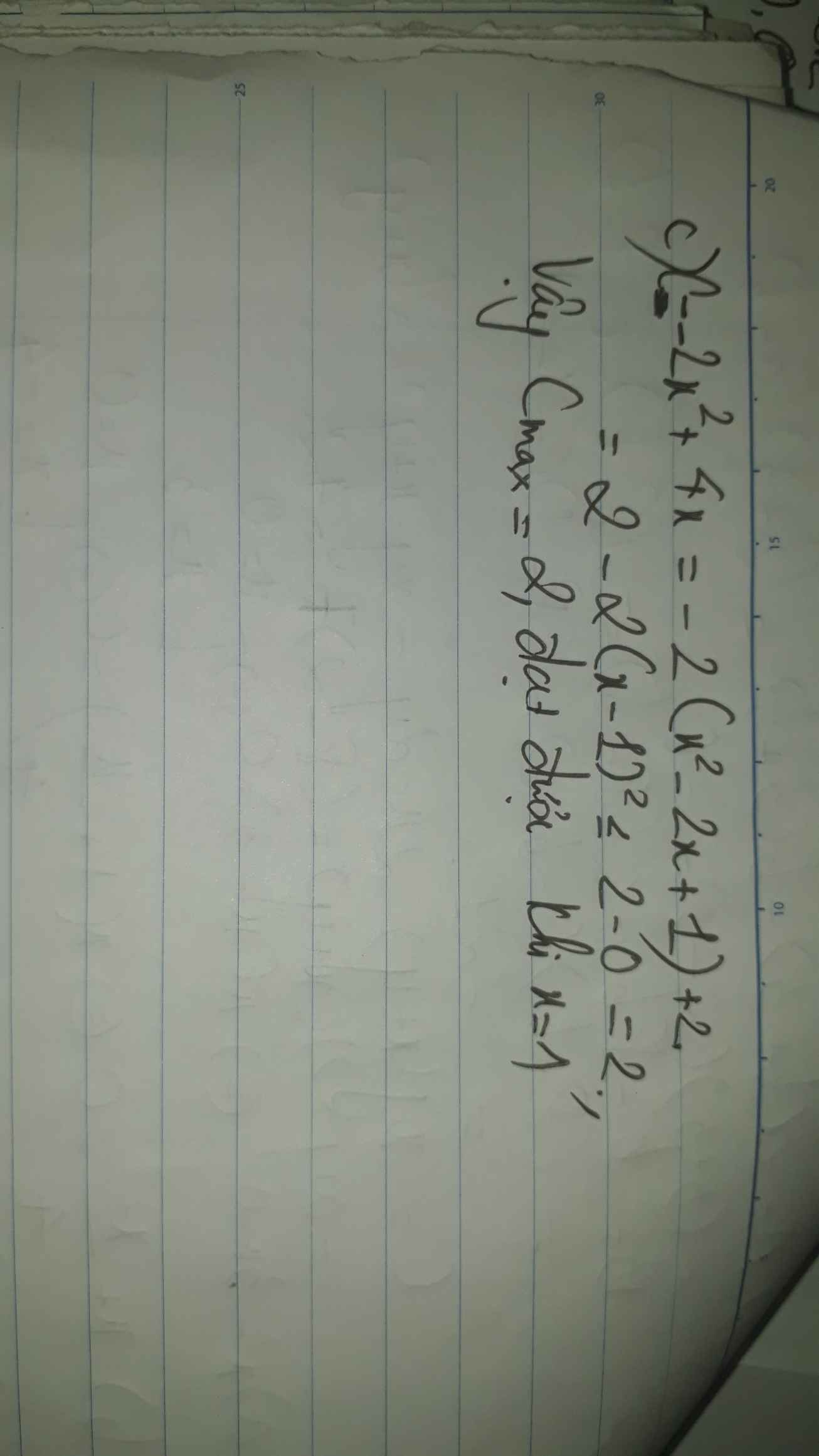
Hãy nhập câu hỏi của bạn vào đây, nếu là tài khoản VIP, bạn sẽ được ưu tiên trả lời.


Lời giải:
Ta thấy $n,n-3$ khác tính chẵn lẻ nên $n(n-3)$ chẵn
$\Rightarrow n^2-3n+1$ lẻ. Do đó:
$25\equiv -1\pmod{13}$
$\Rightarrow 25^{n^2-3n+1}\equiv (-1)^{n^2-3n+1}\equiv -1\pmod {13}$
$\Rightarrow 25^{n^2-3n+1}-12\equiv -13\equiv 0\pmod {13}$
Vậy $25^{n^2-3n+1}-12$ luôn chia hết cho $13$ với mọi $n$ nguyên dương
Do đó để nó là snt thì $25^{n^2-3n+1}-12=13$
$\Leftrightarrow n^2-3n+1=1$
$\Leftrightarrow n(n-3)=0$
$\Leftrightarrow n=3$ (do $n$ nguyên dương)

\(\dfrac{5}{x+2}-\dfrac{x-1}{x-2}=\dfrac{12}{x^2-4}+1\left(x\ne-2;x\ne2\right)\)
\(< =>\dfrac{5\left(x-2\right)}{\left(x+2\right)\left(x-2\right)}-\dfrac{\left(x-1\right)\left(x+2\right)}{\left(x+2\right)\left(x-2\right)}=\dfrac{12}{\left(x-2\right)\left(x+2\right)}+\dfrac{\left(x-2\right)\left(x+2\right)}{\left(x-2\right)\left(x+2\right)}\)
suy ra
`5x-10-(x^2 +2x-x-2)=12+x^2 -4`
`<=>5x-10-x^2 -2x+x+2-12-x^2 +4=0`
`<=>-x^2 -x^2 +5x-2x+x-10+2+4=0`
`<=>-x^2 +4x-4=0`
`<=>x^2 -4x+4=0`
`<=>(x-2)^2 =0`
`<=>x-2=0`
`<=>x=2(ktmđk)`
vậy phương trình vô nghiệm
ĐKXĐ: \(x\ne\pm2\)
\(\dfrac{5\left(x-2\right)}{\left(x-2\right)\left(x+2\right)}-\dfrac{\left(x-1\right)\left(x+2\right)}{\left(x-2\right)\left(x+2\right)}=\dfrac{12}{\left(x-2\right)\left(x+2\right)}+\dfrac{\left(x-2\right)\left(x+2\right)}{\left(x-2\right)\left(x+2\right)}\)
\(\Rightarrow5\left(x-2\right)-\left(x-1\right)\left(x+2\right)=12+\left(x-2\right)\left(x+2\right)\)
\(\Leftrightarrow5x-10-\left(x^2+x-2\right)=12+x^2-4\)
\(\Leftrightarrow-x^2+4x-8=x^2+8\)
\(\Leftrightarrow2x^2-4x+16=0\)
\(\Leftrightarrow2\left(x-1\right)^2+14=0\)
Do \(\left\{{}\begin{matrix}2\left(x-1\right)^2\ge0\\14>0\end{matrix}\right.\) ;\(\forall x\)
\(\Rightarrow2\left(x-1\right)^2+14>0\)
Vậy phương trình đã cho vô nghiệm

\(\dfrac{15\left(x-y\right)^5-9\left(x-y\right)^4+12\left(x-y\right)^2}{\left(x-y\right)^2}\)
\(=15\left(x-y\right)^3-9\left(x-y\right)^2+12\)

\(\dfrac{x}{15}\)+\(\dfrac{x}{12}\)=4/1+1/2=9/2
=>x(\(\dfrac{1}{15}\)+\(\dfrac{1}{12}\))=9/2
=>x\(\cdot\)\(\dfrac{3}{20}\)=9/2
=>x=9/2:3/20=30
Vậy x=30
\(\dfrac{x}{15}+\dfrac{x}{12}=\dfrac{9}{2}\Rightarrow\left(\dfrac{1}{15}+\dfrac{1}{12}\right)x=\dfrac{9}{2}\)
\(\Rightarrow\left(\dfrac{12+18}{180}\right)x=\dfrac{9}{2}\Rightarrow\dfrac{30}{180}x=\dfrac{9}{2}\Rightarrow\dfrac{1}{6}x=\dfrac{9}{2}\Rightarrow x=\dfrac{9}{2}.6=27\)


